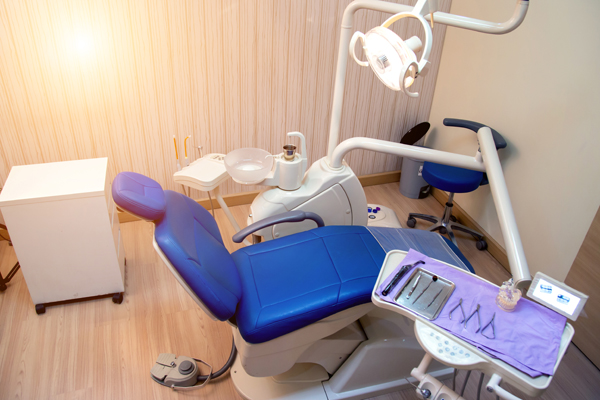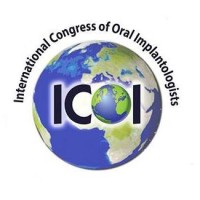When Bone Grafting Is Needed from an Implant Dentist for Tooth Replacement

Not every patient requires a bone graft procedure before tooth replacement from an implant dentist, but it may be necessary for certain situations. This review discusses the role of bone grafting in the implant dentistry process and what to expect before, during, and after a bone graft procedure.
Bone grafting from an implant dentist: when is it necessary?
A bone grafting procedure is needed when there is not enough healthy bone inside of the jaw to support the dental implant. During the consultation visit, the implant dentist and the patient can put together a treatment plan that helps the patient reach their goals for tooth replacement.
What is bone grafting?
Bone grafting (for dental purposes) is an oral surgery procedure that involves taking bone tissue either from another part of the body or donor bone tissue and grafting it to the area of the jawbone above or below where the implant will be placed. After the procedure, the bone must heal and grow properly in the jaw before the placement of the dental implant can be scheduled with the implant dentist.
The need for bone grafting before tooth replacement
Bone grafting is necessary when there is not enough bone tissue in the jaw to support dental implants. Otherwise, the risk of a failed dental implant is much higher. There are two main causes for this, which are:
- Bone loss caused by atrophy
- Bone loss due to gum disease
Bone atrophy in the jaw can occur as a result of the loss of a tooth (or multiple teeth). This is because the purpose of the jawbone is to support teeth, and without teeth to hold, the jawbone serves less of a role; dental implants restore this lost purpose. Perhaps a more common cause of bone loss is gum disease, also called periodontal disease, which can attack the supporting structures of teeth.
When bone grafting is not necessary before tooth replacement
Bone grafting may not be required before tooth replacement if the patient has not experienced bone loss in the jaw above or below where the tooth is being replaced. A dentist can determine the status of bone density with dental X-rays.
What to expect after your bone graft procedure
After a bone graft procedure, it can take a couple of months for the bone to properly heal. Once the mouth has healed properly, then a follow-up procedure is scheduled for the placement of the dental implant. Osseointegration must take place for the bone to fuse with the implant, and the restoration can be placed after osseointegration has taken place.
Bone grafting FAQs from an implant dentist
To ensure you have the most information possible before your visit with an implant dentist, here are some answers to common questions patients have about bone grafting.
Are there any risks with a bone graft procedure?
As is the case with any surgical procedure, there are certain risks associated with a bone graft procedure. These risks include the possibility of an infection, complications with anesthesia, and nerve damage, among other risks that your dentist can discuss in greater detail. However, with that said, complications from a bone graft procedure are incredibly rare and typically not serious when they do arise.
How can I prepare for my bone graft procedure?
Your implant dentist should provide instructions to follow before your procedure. This likely includes not eating for at least 12 hours before the procedure to help avoid complications with anesthesia. Since the mouth is likely to be sore for several days after the procedure, it is helpful to go shopping for water and soft foods before the procedure as well.
When can I return to normal activity?
There are several factors that impact when you can return to normal activity, such as what your normal day looks like, the level of pain and swelling after the procedure, and the type of sedation that is used. In general, patients are usually able to return to normal activity between one and three days after the procedure.
Put together your treatment plan during an implant dentistry consultation
An implant dentistry consultation offers a way for you to meet our implant dentist and the rest of their staff and determine if implant dentistry is right for you. We assist patients through the entire tooth replacement process, and we can start by determining if a bone graft procedure would be necessary before implant placement. Call us today to schedule your first visit.
Request an appointment here: https://www.encinodentalassociates.com or call Encino Cosmetic & Dental Implants at (818) 578-2333 for an appointment in our Encino office.
Check out what others are saying about our dental services on Yelp: Will I Need a Bone Graft for Dental Implants in Encino, CA.
Related Posts
Probablemente haya visto los comerciales y videos en redes sociales donde los pacientes lloran de emoción cuando reciben sus nuevos dientes. Lo que no muestran es a esos mismos pacientes llorando otra vez—esta vez por la frustración—cuando su prótesis All-on-4 falla o surgen complicaciones con el tiempo. Si bien All-on-4 es una excelente opción para…
您可能在广告或社交媒体上看到过患者在安装好新牙时激动落泪的视频。但广告并没有展示这些患者在他们的 All-on-4 义齿出现问题或失败时因沮丧而再次流泪的情景。 虽然 All-on-4 对某些患者来说确实是很好的选择,但我认为非常重要的一点是,不要仅仅被宣传打动,而要深入了解这种方案是否真正适合您的具体情况。作为一名在加州恩西诺(Encino, CA)执业的美容及种植牙医,我曾帮助许多患者重建他们的笑容,我希望与您分享我的看法,帮助您做出一个明智的决定,让您多年后依然感到满意。 All-on-4 是一种治疗理念,通过在颌骨中战略性地植入四颗种植体,支撑整排修复牙齿。该方法最初是为那些在后牙区域缺失大量骨量的患者设计的,目的是尽量避免骨移植。 与植入六颗或更多种植体相比,All-on-4 通常速度更快,价格也可能更为实惠。对于一些诊所而言,这种方法也常被推荐,因为操作流程快,批量实施更加盈利。 All-on-4 之所以如此流行,有其合理之处。以下是一些主要优点: 需要的种植体更少:每个牙弓只需四颗种植体,而不是六颗或更多。 治疗时间更短:在许多情况下,可以更早佩戴临时修复体。 避免骨移植:倾斜放置的种植体有助于利用现有骨量。 初期费用较低:因为种植体和手术减少,前期成本较低。 在这些优势确实与患者的口腔条件及目标相符时,我会推荐 All-on-4。 尽管 All-on-4 有许多好处,但它并非适合所有人。以下是我与患者讨论时通常提到的重要因素: 因为这种桥体是固定的,清洁下方区域会更加困难。我经常在清理时看到义齿下积聚大量牙菌斑,也看到很多患者因为清理不到位导致牙龈发炎。长此以往,这最终可能导致种植体周围炎甚至种植体失败,同时还会引起长期口臭。 还有一点很多患者在一开始不了解:这种修复体每年需要2到3次专业清洁。这不是普通的牙周洁治,而是必须由牙医拆卸修复体、清理种植体周围,并更换小螺丝(这些螺丝并不能无限次重复使用)。这些维护会在多年中增加额外成本和耗时。 我的修复设计与很多诊所不同—我在设计时充分考虑了更容易清洁和在大多数情况下外形更自然。这些额外的规划能帮助患者长期维持牙龈和种植体的健康。 如果未来某个种植体失败,整个修复体的稳定性都可能受到影响。我看到许多在其他机构安装 All-on-4 后出现问题的患者来到我的诊所。很难告诉他们,他们需要从头开始治疗—并且通常还要重新支付种植体和修复体的费用。这对患者来说是非常痛苦的—在情感上、经济上,以及他们不得不再次接受手术。 这就是为什么我通常会选择植入五颗或六颗种植体,而不是只放四颗—这样可以提供更高的安全性、更长的使用寿命和更安心的体验。当未来某颗种植体出现问题时,这样的额外支持往往可以避免整套修复体完全失效。 仅有四颗种植体意味着咬合力集中在更少的区域。这会随着时间推移对种植体和骨头产生更大压力,也是种植体在清洁不到位时容易因为过大咬合力而失败的原因之一。 很多机构宣称 All-on-4 可以在一天之内完成整个流程。然而,实际上在当天植入时,牙龈往往并不健康。我见过很多病例,一开始就引发慢性炎症和骨吸收。 此外,还有其他治疗方案,例如 All-on-6、分段式固定桥或可摘式种植体义齿,这些可能根据患者的骨量、健康状况和目标更合适。 我尽量保留更多骨组织,为长期成功和未来选择打下基础。 我通常分阶段进行治疗,而不是一次性全部完成。这样可以先让牙龈恢复健康,再进行最终修复体安装。 我会根据患者条件定制种植体数量和位置—通常我建议植入五颗或六颗,以便更好地分散咬合力,提升长期稳定性。 我设计的修复体更容易清洁,外观更自然。 在很多情况下,我会重建或增强原有骨组织,以便在未来长期维持颌骨和种植体的健康。 这些额外的细致考虑,往往会对您长期的健康和满意度产生重要影响。 如果未来有一个种植体失败,会发生什么? 我的骨量是否足够?是否需要植骨? 我能否彻底清洁修复体下方? 是否有其他治疗方案?为什么推荐这种方法? 是否有可能更适合我的其他治疗选择? 修复体将使用什么材料? 它能用多久? 这非常关键,因为在花费数千美元后,All-on-4 修复体通常只能使用7到15年。请自问:您是否能接受? 我听说在这个过程中会切除骨头,使我的下颌看起来更小,是真的吗? 我相信,您有权获得所有这些问题的明确而诚实的答案。 决定修复笑容是一个重大决定。我的目标是帮助您了解所有的选择,让您能根据健康状况、生活方式和预算做出最佳决定。 这些年来,我有幸为来自恩西诺、洛杉矶,以及纽约、佛罗里达和内华达等地的患者提供个性化高质量的种植牙服务。 如果您希望了解更多,或想就…
Вы, вероятно, видели рекламу и видеоролики в соцсетях, где пациенты плачут от радости, получая новые зубы. Но вы не увидите, как эти же пациенты плачут снова — теперь уже от разочарования, когда их протез All-on-4 выходит из строя или возникают осложнения спустя годы. Хотя All-on-4 может быть отличным вариантом для некоторых людей, я считаю крайне…
You’ve probably seen the commercials and social media videos where patients are in tears when their new teeth are delivered. What you don’t see are the same patients crying again—this time out of frustration—when their All-on-4 prosthesis fails or complications arise years later. While All-on-4 is a great option for some patients, I believe it’s…




